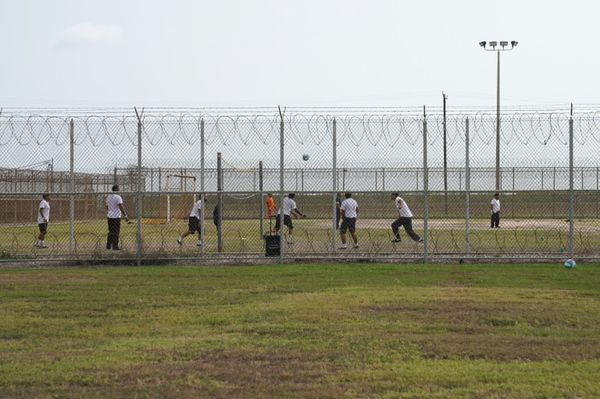
From age-old spin to causing deliberate harm, a new shamelessness is permeating Australian politics —and it’s determined to replace fairness with ugliness.
We’ve seen it in attempts to delegitimise anti-corruption commissions. We’ve seen it in dismissive responses to the robodebt royal commission’s report. And we’re seeing it in spades around the Indigenous Voice to Parliament campaigns.
So what does this new shamelessness look like? How is it different from the shamelessness that’s characterised politics since time immemorial? And what’s at stake for Australia?
Let’s start with this week’s new lows: on Monday, former prime minister Scott Morrison claimed that the robodebt commission’s findings were part of a “campaign of political lynching” targeting him, dismissing the inquiry as a “quasi-legal process”. NDIS and Government Services Minister Bill Shorten reminded the Parliament who the “real victims” of robodebt were: the people who lost their financial security, their homes, and even their lives.
There is no case in Australian political history that compares with the appalling conduct that created robodebt, found by this year’s royal commission to be illegal, unfair and cruel.
So shameful were the findings that commissioner Catherine Holmes was driven to offer two pieces of direct moral advice in the opening pages of her 1000-page report. First, that “anti-welfare rhetoric is easy populism, useful for campaign purposes” and must end — people receiving welfare payments must be treated with respect. Second, that unless governments do behave ethically, something like robodebt risks happening again: “Culture is set from the top down.”
How did the politicians behind the scheme respond?
The person ultimately responsible — Morrison, as former social services minister and former prime minister — rejected the findings as “disproportionate, wrong, unsubstantiated”, “speculative” and “absurd”, and “offensive and baseless”. Former ministers Christian Porter, Stuart Robert and Alan Tudge have also rejected the findings.
But what does that mean? Royal commissions investigate the ways governments carry out their responsibilities. They are Australia’s “highest form of inquiry on matters of public importance”, with the power to compel witnesses to appear or give evidence, and their outcomes have frequently been enacted into law. To reject their findings is to question the Commonwealth’s most rigorous, authoritative political accountability mechanism.
And that takes a peculiar degree of shamelessness, normalised by the poor and dishonest conduct that, as Bernard Keane has argued, characterised the former government. (As part of an extended integrity investigation, Crikey put together a top-50 dossier of Morrison’s “lies and falsehoods” back in 2021, complete with fact-checked references.)
Consider also the shamelessness of “I don’t recall” as a defence. No-one can be expected to testify on the basis of recollections they don’t have, but are we truly to believe that this increasingly common response isn’t being used to deflect a lie?
When a politician says “I reject that”, a journalist must ask “On what basis?” Instead, headlines telegraphing that rejection serve to reinforce the new shamelessness by validating the statement as legitimate in the face of facts, judicial outcomes or royal commission findings. We must all raise the bar.
Which leads us to the National Anti-Corruption Commission (NACC). Having received 44 referrals on its opening weekend, then 494 referrals within its first three weeks, inaugural commissioner Paul Brereton declared with magnificent understatement: “And now there is work to be done.”
That workload is no great surprise. Sports rorts, car park rorts, regional rorts, the second Sydney airport land rort, the PwC tax leak scandal, the offshore detention corruption, Morrison’s secret ministries — and they’re just some of the matters we know about.
Given that sheer volume and its great national interest, you’d think politicians would be lining up to distance themselves from the shame and represent a renewed public integrity. Instead, several have made remarks that undermine such commissions or seek to delegitimise their findings. Former attorney-general Porter, the minister responsible for the former government’s integrity commission, even had to have his misrepresentation of the body’s powers corrected by senior public servants.
As prime minister, Morrison had promised but failed to establish an integrity commission. In 2021, under parliamentary privilege, he justified his delay by deriding the NSW ICAC as a “kangaroo court” that carried out “political vendettas”, and falsely claiming it had “chased” former NSW premier Gladys Berejiklian “out of office before [it] even made a finding”.
Immediately after this year’s NSW ICAC findings of “serious corrupt conduct” against Berejiklian, federal opposition leader Peter Dutton said she “is not a corrupt person” and “her integrity is not in question”.
In her ICAC testimony, Berejiklian had sought to legitimise pork-barrelling, reframing it as “not an illegal practice” but something that is acceptable because “all governments” do it. Back in 1994, a tell-tale whiteboard was enough to secure the resignation of a minister; today, a new shamelessness protects poor conduct. Worse, it opens the door to continued corruption, presenting a public face without contrition and without conscience.
And now to the Indigenous Voice to Parliament.
“Canberra elites“? That’s age-old spin. “Re-racialising Australia“? That’s the new shamelessness.
The egregious falsehoods in the No campaign flyer, so easily refuted; the persistently racist remarks of a No campaign leader; the racist full-page ad in The Australian Financial Review; it’s been deeply concerning to see so many No campaigners take such ugly approaches.
The harm they have set out to cause is clear. The No campaign wants to infuse the national conversation with so much hurt that more and more people will recoil from the discussion and make no effort to find out more. The pamphlet to be sent to all Australian households puts it bluntly: “If you don’t know, vote No.”
Blatant falsehoods fostering division, inciting racism and encouraging ignorance: that’s the new shamelessness.
The viability of an anti-corruption commission, the risk of another scheme like robodebt, the fight against racism, respect for First Nations sovereignty — all rely on a culture of integrity. The new shamelessness takes every opportunity to weaken the public institutions that uphold that integrity, replacing them with an ugly corruption that reinforces abuses of power.
Anthony Albanese began his prime ministership committed to “rebuilding respect for politics in this country” and restoring it as “an honourable profession”.
Until that happens, shamelessness remains our greatest challenge in holding power to account.
Are you ashamed of our politicians’ shamelessness? Let us know by writing to letters@crikey.com.au. Please include your full name to be considered for publication. We reserve the right to edit for length and clarity.







